Download my app and my 3 booklets – Jerusalem, Tel Aviv and Masada
Check out our shop where you can purchase tours! Learn More
I want you to visit Israel. My whole site is dedicated to encouraging you to do that.
However, there are things that I don’t like about Israel (when it comes to tourism) and I assume that you probably won’t either.
My list has also been influenced by the hundreds of travelers I’ve talked to. You’ll be happy to know I do have solutions to most of the issues.
I’ve already touched on this in a lot of posts so here I’ll keep it short. The biggest problem is that Israel is expensive. Money-wise, think in terms of New York and London.
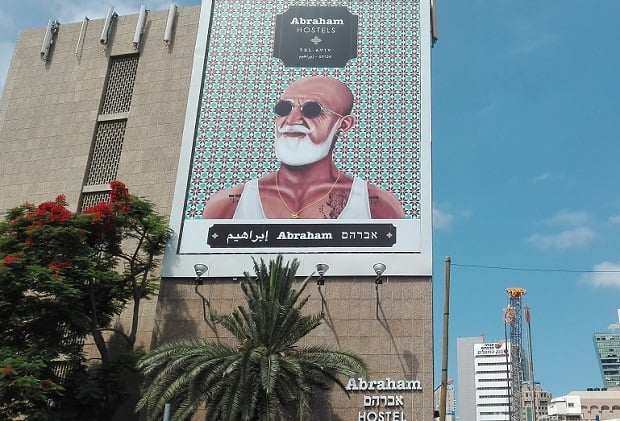
Solutions:
* There are some great hostels. Most of them offer private rooms, along with private bathrooms. So it isn’t that different to a 3-star hotel, plus you get a kitchen to cook in and a great atmosphere: Hostels in Tel Aviv, Hostels in Jerusalem.
* When it comes to flights, if you are holidaying in Israel during the winter, why not land in the desert?
* Fewer restaurants, more great street food! (And always check the price of drinks before you order!)
Relatively, Israelis can spick quite god english.
TV series and movies are shown in English with Hebrew subtitles. (Which works out much better than in Europe, where they are usually dubbed.)
But we are terrible at spelling. I am not sure what the reason is, but I think it’s partly to do with the fact that in Hebrew we almost never use vowels (which is why the words in Hebrew are so short).
Maybe spelling in English is just hard or maybe it’s pure laziness, and we assume that people will also understand us if the ‘a’ is an ‘e’.
As a traveler in Israel you need to be aware that if you make a booking it’s important to make sure your name has been spelled correctly.
Also related to this subject: Yafo St., Jaffa Road, and Derech Yafo all refer to the same place.
Yafo is the Hebrew name and Jaffa is the English name, but both are in use on maps and signs.
Be aware that Rechov is ‘street’ in Hebrew, so sometimes ‘street’ is written and sometimes the Hebrew transcription is written.
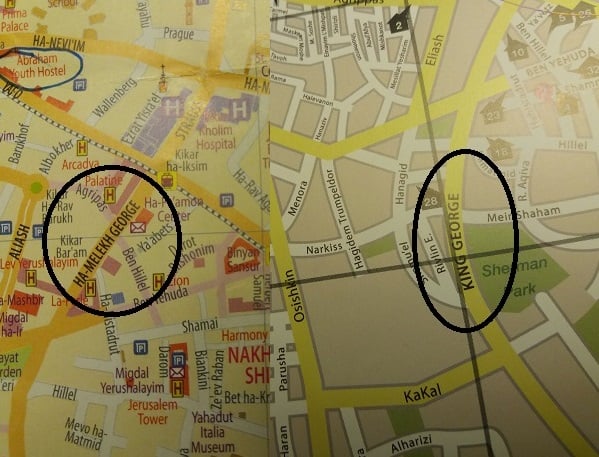
Another example: where do you want to go?
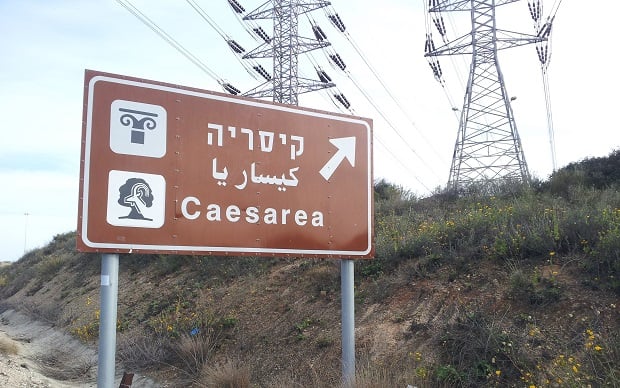
Public transportation is not expensive, but nor is it always reliable. The main problem is that from Friday noon until Saturday night there are no buses and trains. (There are taxis, which cost a lot more, and I’ll go into this later in the post.)
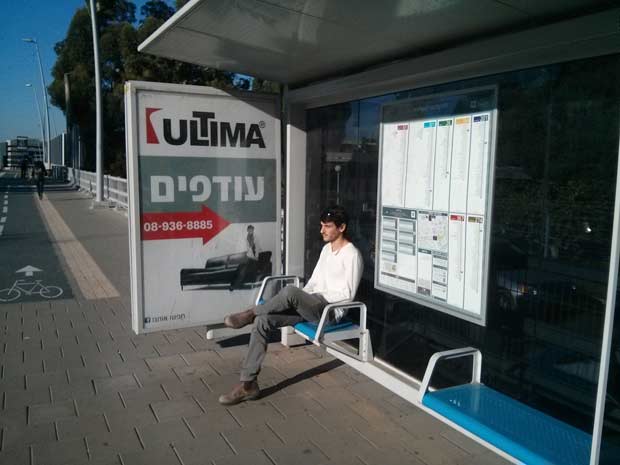
Solution: Take this into consideration when planning. If you’re not renting a car, then maybe try to be in the cities on the weekends and don’t plan to travel too far.
The roads in Israel are good and the signs are also written in English, but Israelis are not the most generous of drivers… When two lanes merge into one you may wonder if you have suddenly developed superpowers and become invisible. Nobody can see you! Finding a parking spot in Jerusalem or Tel Aviv (or Jaffa, Nazareth, Haifa, etc.) isn’t easy, and parking lots aren’t cheap.
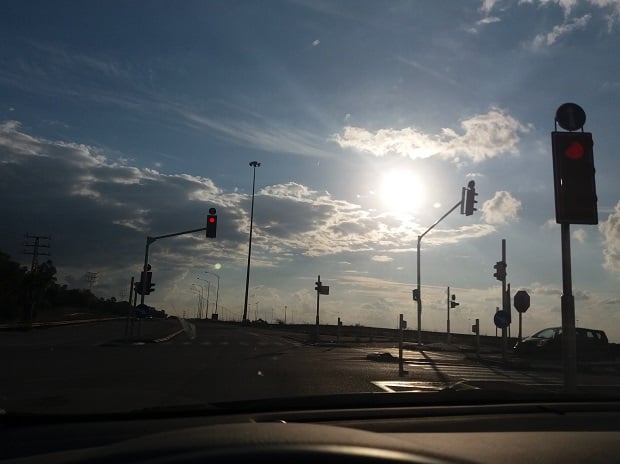
Solutions:
* Don’t drive in the cities: hire a car only when you plan to travel in the Golan Heights, Judaean Desert and Negev Desert.
* If you’re traveling by car ask the hotel if they have a parking lot (or choose one that has).
* I always recommend having internet access while traveling. It makes life so much easier. If you’re online you can use Google Maps or Waze (the Israeli app that most Israelis use) to navigate around the cities. You can always hire a car and pay extra for a sat-nav.
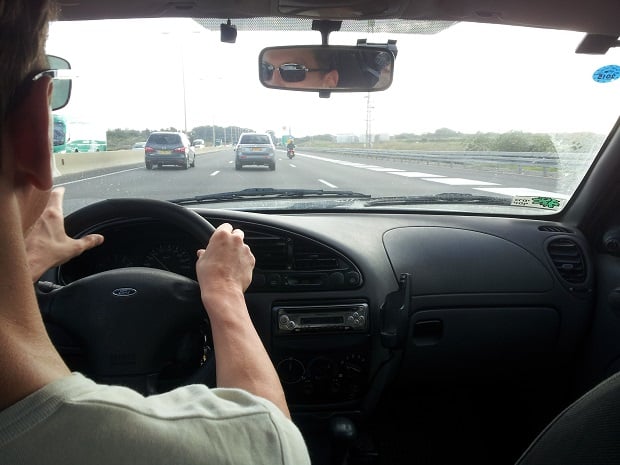
One aspect of my work that I really like is that I guide Israelis outside Israel and foreigners in Israel. One day I’ll write a post (or a PhD) about the differences between the two groups, but for now one clear difference is that Israelis don’t know how to stand in line, or rather, Israelis have a different definition of what a line is.
When English people stand in line you have one person standing there and, behind him or her, a fair distance away, another person, and so on.
As for the Israeli queue: One person stands and guards his position as the first in line, behind him are two people standing so close he can smell the onions they ate for lunch. Behind those two are four people pushing the first two, but doing so as if the eight people standing behind them are to blame…
Solution: If you’re standing in line and someone tries to cut in front, tell him or her that you were before them.
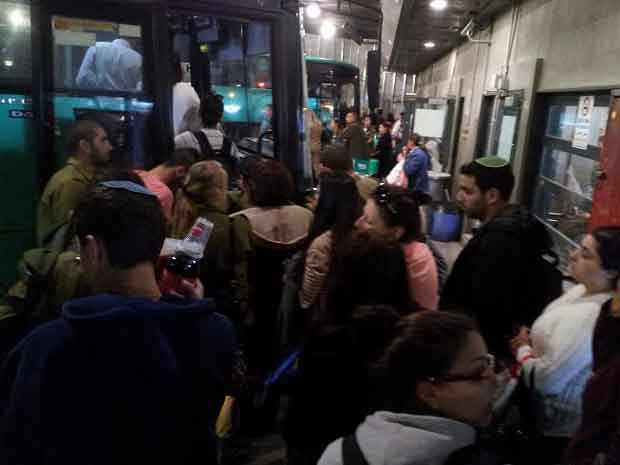
A problem known worldwide is that of taxi drivers charging tourists more than they should. Places to be aware of in Tel Aviv are the promenade and the train stations. In Jerusalem the most problematic place is Jaffa Gate.
Solutions:
* The driver has to use the meter; if he won’t use it then tell him to stop and get out.
* Get your taxi via an app (for example, GETT). This way the driver knows you have his details.
* If you think you’ve been scammed then take a photo of the taxi number. Your hotel or hostel can help you file a complaint against the driver.
There are shopkeepers or stallholders who will try to scam tourists in popular tourist destinations all over the world. It’s the same in Israel.
If you’re in a market where you can’t see a price on the item, this is probably a sign that you’ll end up paying much more than it’s worth. The worst place for this is the Old City of Jerusalem. Of the hundreds of businesses there, most are fair. But many are not. The worst places are around Jaffa Gate, Via Dolorosa and the area next to the Church of the Holy Sepulchre.
Some merchants can be highly aggressive and even swear at you. Don’t tolerant aggressive behavior and just get yourself out of there.
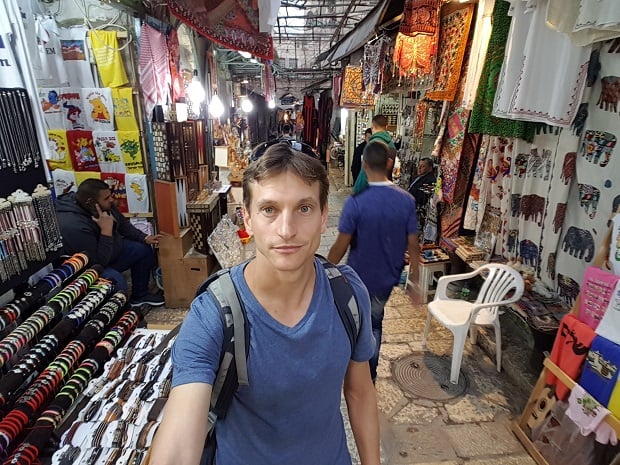
Solution:
There are some great shops off the beaten track that I recommend in my Jerusalem app. A short summary:
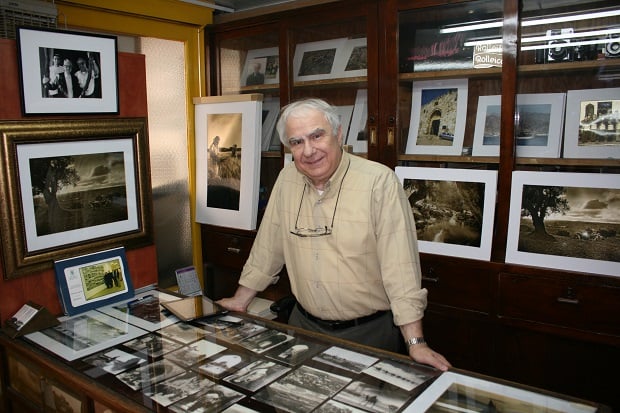
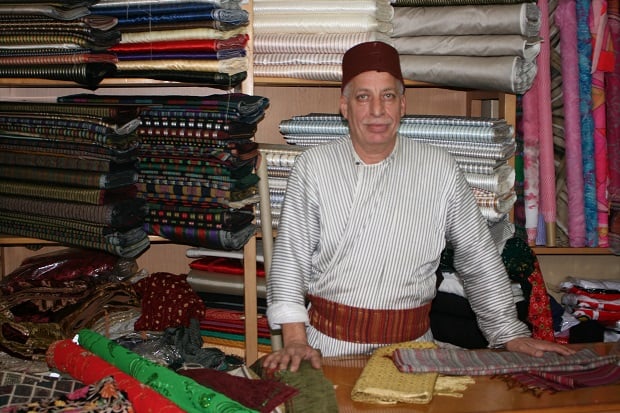
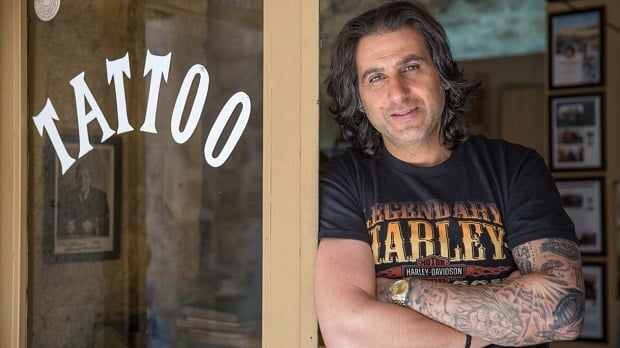
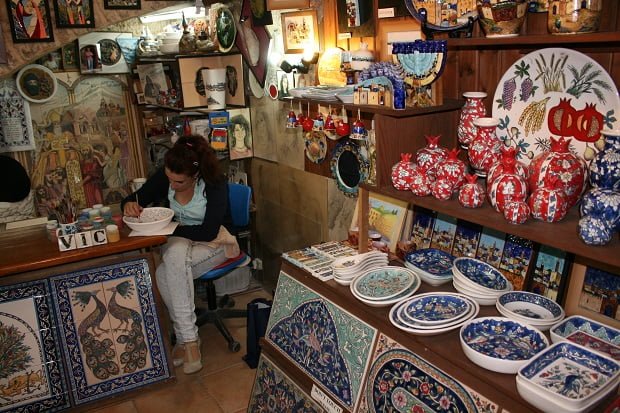
When you buy from these guys, you’re supporting the ones who deserve your custom!
The Church of the Holy Sepulchre is the most important church in the world. The history of the place is overwhelming.
The problem is that it’s a small space, and ALL the tourists who come to Israel want to visit it.
Because of the complex history of the site there are no rules regarding how you ought to behave inside the church, so there are scores of groups with their guides and it all gets to be a huge mess.
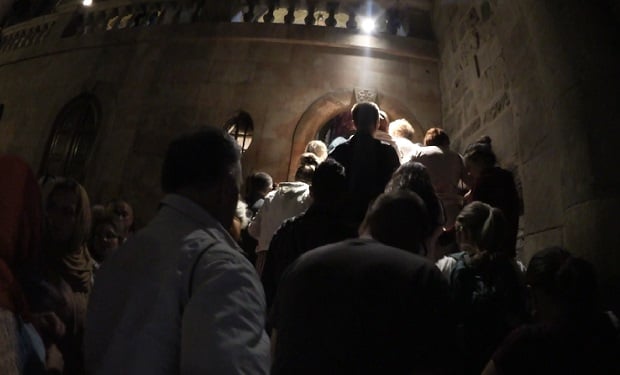
Solutions:
* Here there is a great, simple solution!
The church opens very early in the morning, around 5 a.m. (depending on whether it’s summer or winter). You can wake up early, enter the Old City when everything is closed, and have this holy site almost to yourself.
* Another thing you could do, and I know it sounds strange, is visit the Garden Tomb, the protestant tomb of Jesus.
There are two sites considered to be the burial site of Jesus.
How is this possible?
I intend to make a video about it to explain, but until then I will just say that if you are protestant, or just want a quiet place to reflect without being pushed aside by a group of Russians, then the Garden Tomb is a place you’ll like.
And after all the important stuff, one more small and annoying factor.
Israel is a hot country. In summer it gets very, very hot. There is air conditioning in all closed spaces. And for some unknown reason Israelis turn the air conditioning up as high as they can, so that trains, shopping malls and museums can get really cold.
Solution: Quite simple: if you are someone who suffers from the cold, bring a shawl with you (it will also serve you well in churches).
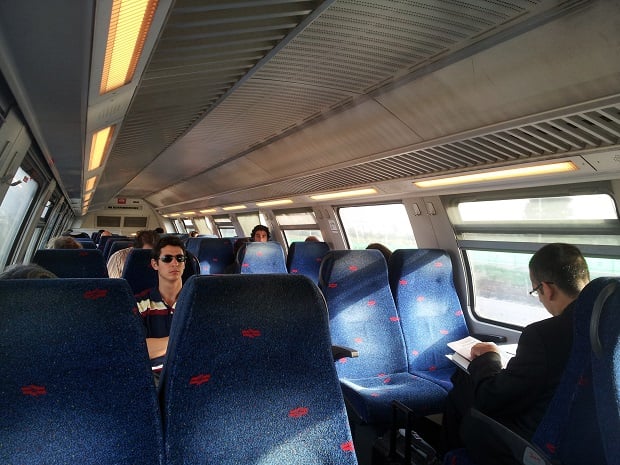
Download my app and my 3 booklets – Jerusalem, Tel Aviv and Masada
+ Discount Codes
…or as a PDF
©2024 Traveling Israel. All rights reserved. | SITEMAP | TERMS & CONDITIONS